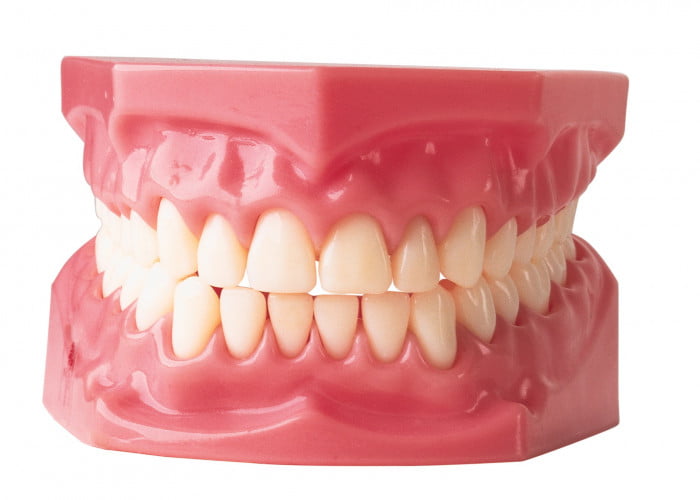Flexible dentures are a great option for those looking to change their smile or replace missing teeth. With high flexibility and durability, flexible dentures help users feel more comfortable when eating and talking. This product is also designed to fit the shape and size of each person’s mouth and helps improve oral health and appearance. If you are looking for a flexible and high-quality denture solution, flexible dentures is a great choice.
What are flexible dentures made of?
Flexible dentures are made of a special type of synthetic resin called nylon. This material is known for its high flexibility, lightweight, and durability.
Nylon is a common material used in various industries, including clothing and household items. However, the nylon used in flexible dentures has unique properties that make it suitable for dental applications.
It is highly flexible, allowing the dentures to bend without breaking, and is also lightweight, reducing pressure on the gums and teeth. Additionally, nylon is resistant to bacteria and does not cause irritation to the skin, making it a safe and effective choice for those with sensitive gums or skin.
Types of Flexible Dentures
There are different types of flexible dentures designed to meet the needs and preferences of each user. Here are some common types of flexible dentures:
- Valplast Dentures: Valplast is a famous brand in the field of flexible dentures. This product is made of high-strength nylon material, which minimizes pressure on teeth and improves. Valplast dentures also have the ability of Tools and retain their original shape after the Construction is active.
- TCS Denture: TCS is a new material used in flexible dentures. It has the same high ductility and flexibility as nylon, but is more recyclable and environmentally friendly.
- Flexite Dentures: Flexite is a fairly new material in the flexible denture industry. It is manufactured from a special resin composite, which gives the product high strength and great flexibility.
- Sunflex Dentures: Sunflex is a flexible denture manufactured from high-quality nylon material, which is able to work and retain its original shape after working. This product also features good moisture resistance and drug resistance.
In addition, there are different types of flexible dentures designed to fit each user’s needs and budget. If you are looking for a flexible and high-quality tooth replacement solution, do a thorough research on flexible dentures before deciding on the right product for you.
Advantages of flexible partial dentures
Flexible partial dentures are a flexible and convenient solution for those who have lost some of their teeth. Compared to traditional dentures, flexible partial dentures have many significant benefits:
- Flexibility: Flexible partial dentures are made from high-quality nylon material, which allows the product to bend and hold its original shape after being bent. This helps to reduce pressure on the gums and teeth, providing a comfortable and natural feeling for the user.
- Aesthetic appeal: Flexible partial dentures have a color similar to that of gums and teeth, making the product blend in with the user’s natural teeth. It also does not create a noticeable difference in shape and color between real and fake teeth.
- Convenience: Flexible partial dentures can be easily removed and installed, saving users time and money on dental appointments. You can also customize the size and shape of the product to fit your needs.
- Durability: Flexible partial dentures have high durability and resistance to erosion and wear over time. It is also not affected by food or tobacco, helping the product maintain its aesthetic appeal and function over a long period of time.
-
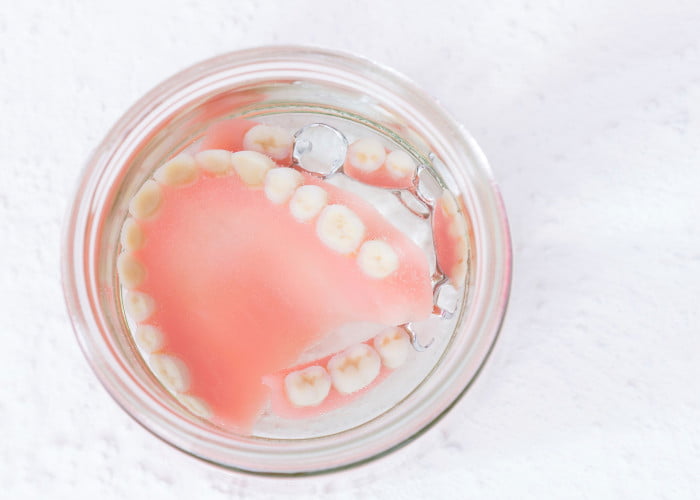
Advantages of flexible partial dentures
Disadvantages of Flexible Partial Dentures
Although flexible partial dentures have many benefits, there are also some disadvantages that need to be considered before deciding to use this product:
- Lower durability: Compared to other types of dentures, flexible partial dentures have lower durability and can be more easily damaged. The nylon material of the product can tear or wear out quickly if not properly stored and used.
- Difficulty with eating: Due to the high flexibility of flexible partial dentures, the product may not hold its position well when users eat or speak. This can cause discomfort and affect the user’s ability to eat and speak.
- Higher cost: Flexible partial dentures are more expensive than other traditional denture types. This can increase the cost for users and make the product less suitable for some people.
- Need for adaptation time: Using flexible partial dentures requires a period of time to adapt. Users may feel uncomfortable or have difficulty using the product in the early stages.
-
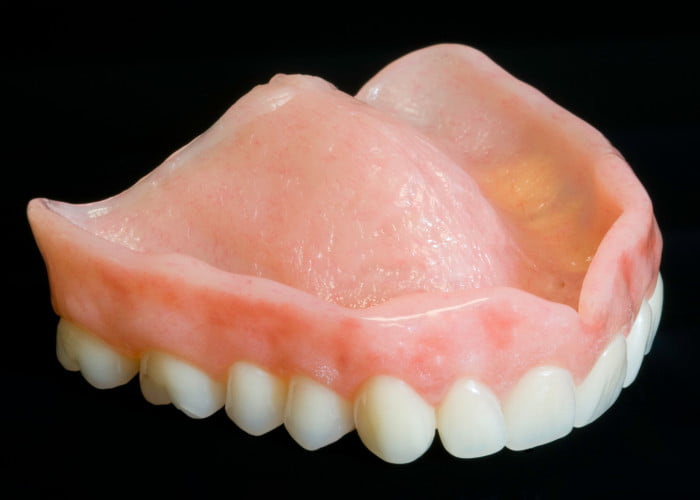
Disadvantages of Flexible Partial Dentures
How much do flexible partial dentures cost?
When considering the cost of this product, it’s important to understand that it can vary based on several factors. On average, the cost of flexible partial dentures typically ranges from approximately $300 to $500 per piece.
However, it’s essential to note that the final cost can be higher or lower depending on various factors.Geographic location plays a significant role in determining the cost of flexible partial dentures. Prices may vary from one region to another due to differences in local economic factors and dental care market dynamics.
Read more: How to stop cavity from growing?
-
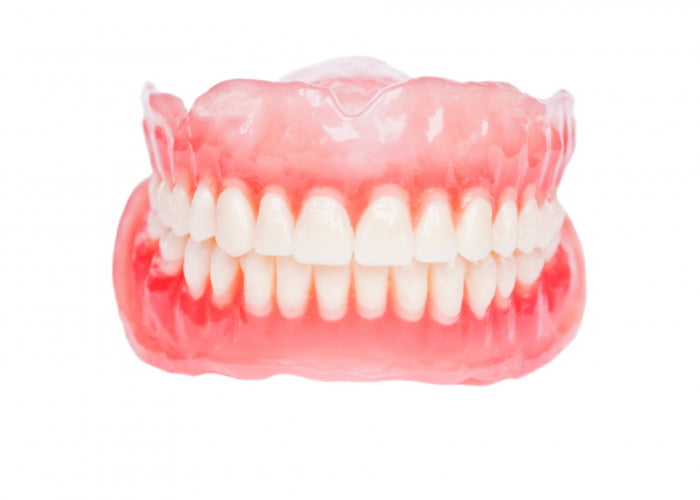
Disadvantages of Flexible Partial Dentures
How to Clean Flexible Dentures?
To ensure the longevity and hygiene of these dentures, regular cleaning and care is essential. Here are some steps to effectively clean flexible dentures:
- Rinse with water: Begin the cleaning process by thoroughly rinsing the flexible dentures with water. This step helps remove any loose dirt or food debris.
- Use a soft-bristled brush: Gently clean the flexible dentures using a soft-bristled brush. Pay close attention to areas between teeth and hard-to-reach corners to ensure a comprehensive cleaning.
- Consider a whitening solution: For a more thorough clean, you may opt to use a whitening solution specifically formulated for flexible dentures. Follow the provided instructions carefully, using the recommended amount to avoid any potential damage to the product.
- Rinse with cold water: After cleaning, rinse the flexible dentures with cold water to remove any residue from the cleaning process. This step helps ensure that no cleaning solution remains on the dentures.
- Soak in a cleaning solution: To further enhance the cleanliness and deodorize the flexible dentures, you can soak them in a specialized cleaning solution. Follow the instructions provided with the cleaning solution, and soak the dentures at the recommended frequency for optimal results.
-
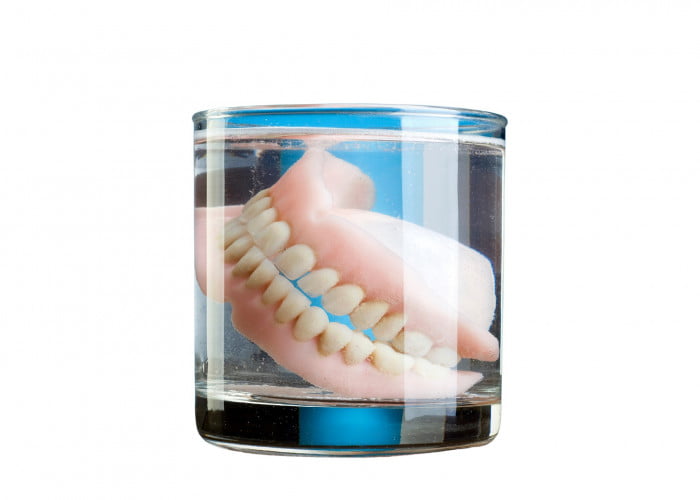
How to Clean Flexible Dentures?
Find out if flexible dentures are right for you
Are you considering tooth replacement options and wondering if flexible dentures are the right choice for you? Flexible dentures offer several benefits and can be an excellent solution for individuals seeking a comfortable and natural-looking replacement option. To determine if flexible dentures are suitable for your specific needs, consider the following factors:
- Number of teeth to be replaced: Flexible dentures are typically designed to replace one or a few teeth. If you have lost too many teeth, you may need to consider other tooth replacement options.
- Condition of gums and jawbone: Flexible dentures require a minimum amount of jawbone and connective tissue to hold the product securely. If you have weak gums or jawbone, flexible dentures may not be suitable for you.
- Overall health condition: Flexible dentures may not be suitable for people with health issues such as gum disease, oral ulcers, or diabetes.
- Nature of work: If your job involves a lot of physical activity or exposure to fluids, flexible dentures may not be suitable.
- Financial considerations: Flexible dentures are relatively expensive compared to other tooth replacement options such as plastic dentures. If you have limited financial resources, you may need to consider other options.
-
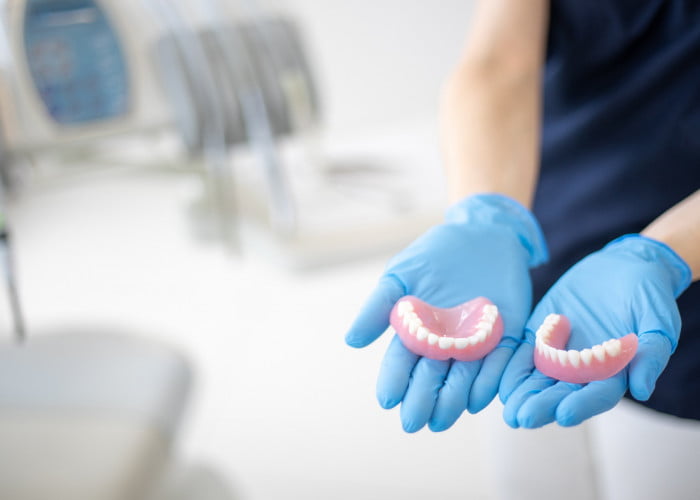
Find out if flexible dentures are right for you
Conclusion
Flexible dentures are a popular and convenient tooth replacement solution for people missing one or several teeth. They offer flexibility, comfort, and a natural appearance. However, they may not be suitable for everyone, and it’s important to consider various factors before deciding on this type of product. If you’re interested in flexible dentures, consult your dentist for advice on whether they are the right solution for your oral health needs.

